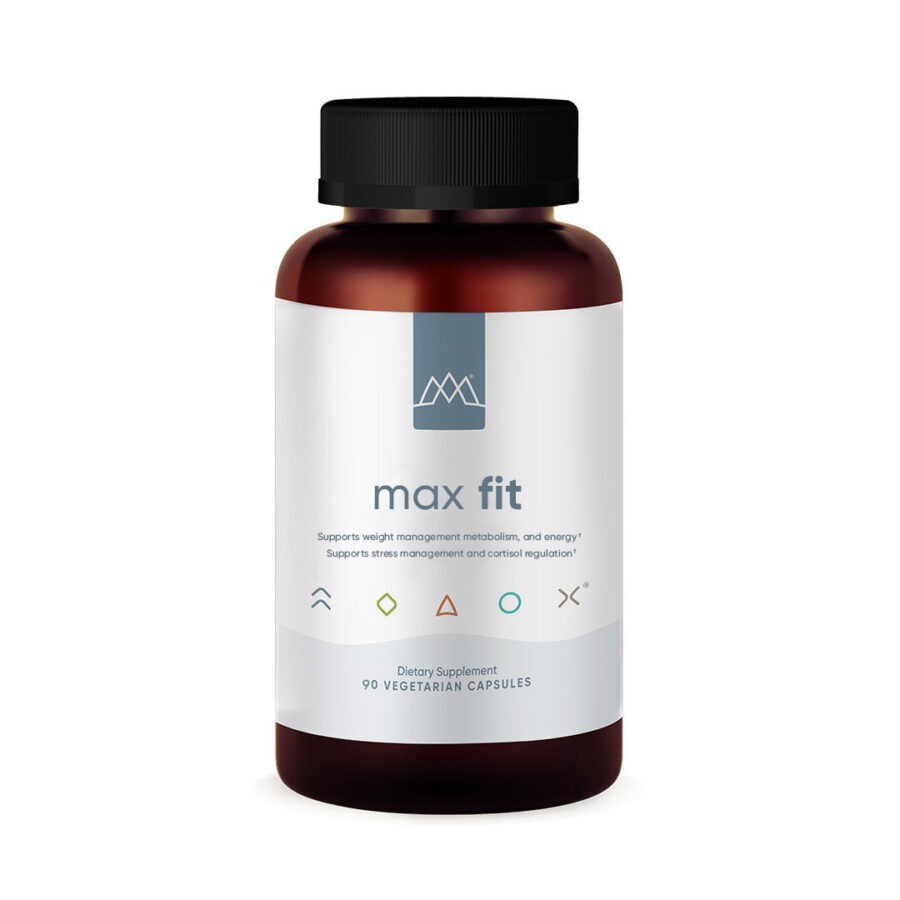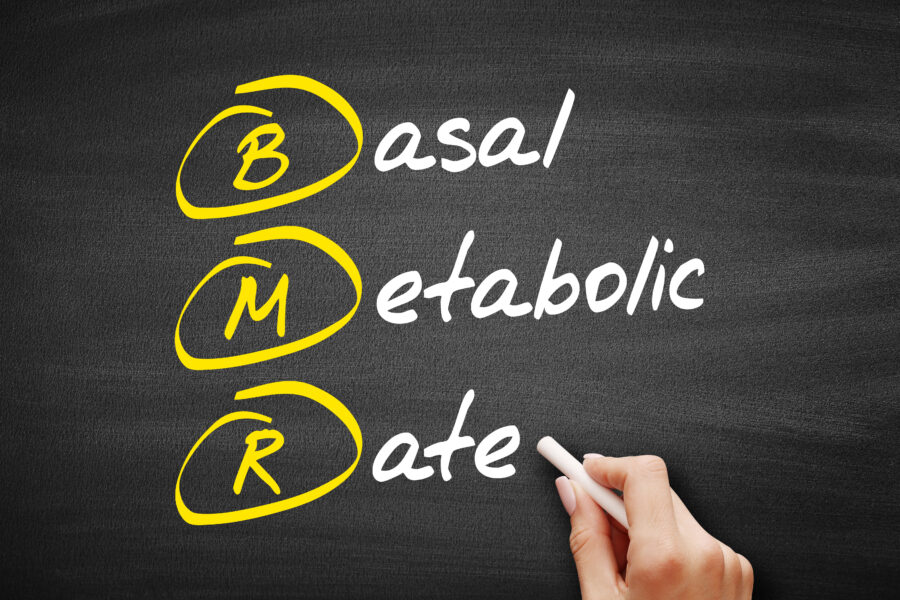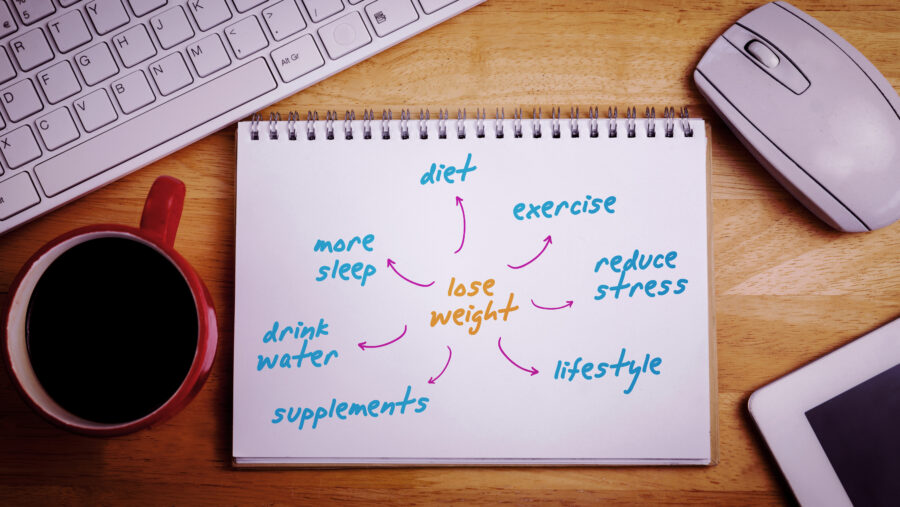If you’re like us, you’re always looking for new information you can use to help you achieve good health. In today’s connected world, we have access to more exciting and actionable insights that help us maintain a holistic lifestyle approach to optimal health.
One of the most popular health topics (and conversations with friends) relates to our metabolism. Metabolism is how the body converts the food you eat into energy. Your metabolism is often referred to as your metabolic rate. This topic brings about several questions like how it can be tracked, how it can be increased, and what it means to have a slow, or fast metabolism. In this article, we’ll answer these questions and give you new information that can help optimize your metabolism, so you can enjoy more energy while getting or maintaining your ideal weight.
What makes up your metabolism?
People commonly talk about how fast or slow their metabolism is. What they are actually saying is, what is the rate at which their body burns calories each day without exercise. This measurement is called your Basal Metabolic Rate (BMR). Your BMR is the total calories burned each day for basic functions and the number of calories your body burns while resting.
Several factors affect your BMR, which can cause you to gain, lose, or maintain your ideal weight. This is key because weight can be a predictor of current or future health outcomes.
For example, carrying too much weight, or worse, obesity leads to health problems such as type 2 diabetes, heart disease, and certain cancers. In contrast, managing your weight within a healthy range can not only reduce your risk of health problems but as you’ll see it is the foundation of optimal health.
What makes up your BMR?
Your body’s BMR (or total energy expenditure) is comprised of three pillars, which are:
- Resting metabolic rate (RMR). When your body is at rest, it still needs energy to keep all its systems functioning correctly. This includes the energy to keep your heart beating to circulate blood to important organs and tissues, breathing, building and repairing cells, and managing hormone levels.
The body’s RMR also includes non-exercise activity thermogenesis (NEAT). This includes maintaining and changing posture (laying, standing, walking, stair climbing, spontaneous muscle contraction, fidgeting, cleaning), singing, and other activities of daily living. Research has shown that RMR accounts for the largest amount of energy expended daily (50–80 percent of your daily energy use).
- Thermic effect of food (TEF, also known as thermogenesis). The process of digesting, absorbing, and transporting the nutrients contained in the foods and drinks you consume requires energy. This process of Thermogenesis accounts for about 5–10 percent of your energy use.
- Planned physical activity. This is the energy your body uses to perform physical movements, like doing sports or exercising. Depending on the type and duration, planned exercise (like going for a run or playing a sport) can account for up to 20% of your daily energy needs but is often less than your RMR.
People who find it difficult to maintain an exercise regimen often lack key nutrients in their diet that support optimal energy production, which causes your body to gain weight. This can cause a number of negative side effects beyond weight gain. These side effects include blood sugar imbalance, fatigue, sleep disturbance, loss of muscle, increased blood pressure, increased abdominal fat, and more.
When your body weight stays the same we say your BMR is maintaining homeostasis which means it has stabilized your weight to the current amount of food and drink you consume and your body’s physical movement from both exercising and resting.
Things that can reduce your metabolism
There are several factors that can hinder one or more of the three pillars that make up your BMR. These are:
- Eating too few calories. While a calorie deficit is a key to weight loss, it can be counterproductive if your calorie intake drops too low. When you drop food intake too low, your body senses food is scarce and it reduces the amount of energy you burn through RMR and NEAT which also causes you to reduce the amount of exercise you do.
- Not eating enough protein. In addition to helping you feel full, eating adequate protein can boost the rate at which your body burns calories. The increase in metabolism that occurs after digestion is called the thermic effect of food (TEF), which is noted above. The thermic effect of protein is much higher than that of carbs or fat. Indeed, studies indicate that eating protein temporarily increases metabolism by about 20–30% compared to 5–10% for carbs and 3% or less for fat.
- Too much stress. While it is true that too much stress can cause you to gain weight, how this works is often regulated by hormones. You see, stress releases a hormone called cortisol. This causes your body to pause regular functions, slowing your metabolism by sending it temporarily, into fight-or-flight mode. While this hormone is essential to survival, it can become harmful in excess amounts and has been linked to excess belly fat.
- Not doing resistance exercise. Working out with weights is a resistance exercise (RE). RE is the simplest way to keep your metabolism from slowing. That’s because RE increases muscle mass, which makes up most of the fat-free mass in your body. Having a higher amount of fat-free mass significantly increases the number of calories you burn at rest.

It doesn’t take much resistance training to boost energy expenditure. In one study over 6 months, participants who performed resistance training for just 11 minutes per day, 3 days a week, experienced a 7.4% increase in resting metabolic rate and burned 125 extra calories per day, on average.
- Missing key nutrients in your diet
Maintaining a healthy BMR is contingent upon making sure your metabolism can turn the foods you eat into usable energy so that your body burns fat while maintaining lean muscle. To that end, several nutrients can help foster improved energy production, support muscle retention as well as optimize the use of fat for fuel. These nutrients are all found in MaxFit by MaxLiving and include:
- Decaffeinated green coffee bean extract for improved energy expenditure,
- Glutamine for improved gut health
- Creatine from CreaPure to fuel resistance exercise and fight off muscle loss
- Carnitine is critical to transporting fats in the body and in food into the cells to be burned for energy
- Ashwagandha, as Sensoril® can reduce serum cortisol (stress hormone) levels, and help maintain healthy sleep patterns
About the Author
 Zach Zovath graduated with a Bachelor’s degree in Exceptional Education from the University of Central Florida. He continued on to receive his Master’s degree from the College of Education and Human Performance at the University of Central Florida. He is a master-level personal trainer, coach, and health consultant. In addition, his specializations include corrective exercise, performance enhancement, prenatal/postpartum core stability, and exercise therapy. As a result of his education and experience in the health and fitness industry, he has developed fast and effective exercise programs for healthcare facilities.
Zach Zovath graduated with a Bachelor’s degree in Exceptional Education from the University of Central Florida. He continued on to receive his Master’s degree from the College of Education and Human Performance at the University of Central Florida. He is a master-level personal trainer, coach, and health consultant. In addition, his specializations include corrective exercise, performance enhancement, prenatal/postpartum core stability, and exercise therapy. As a result of his education and experience in the health and fitness industry, he has developed fast and effective exercise programs for healthcare facilities.






